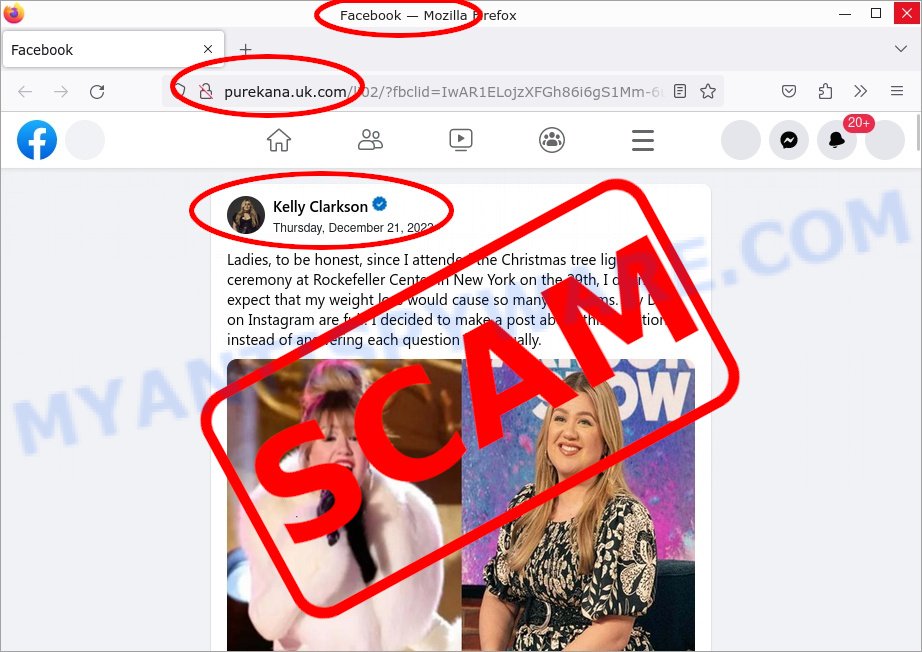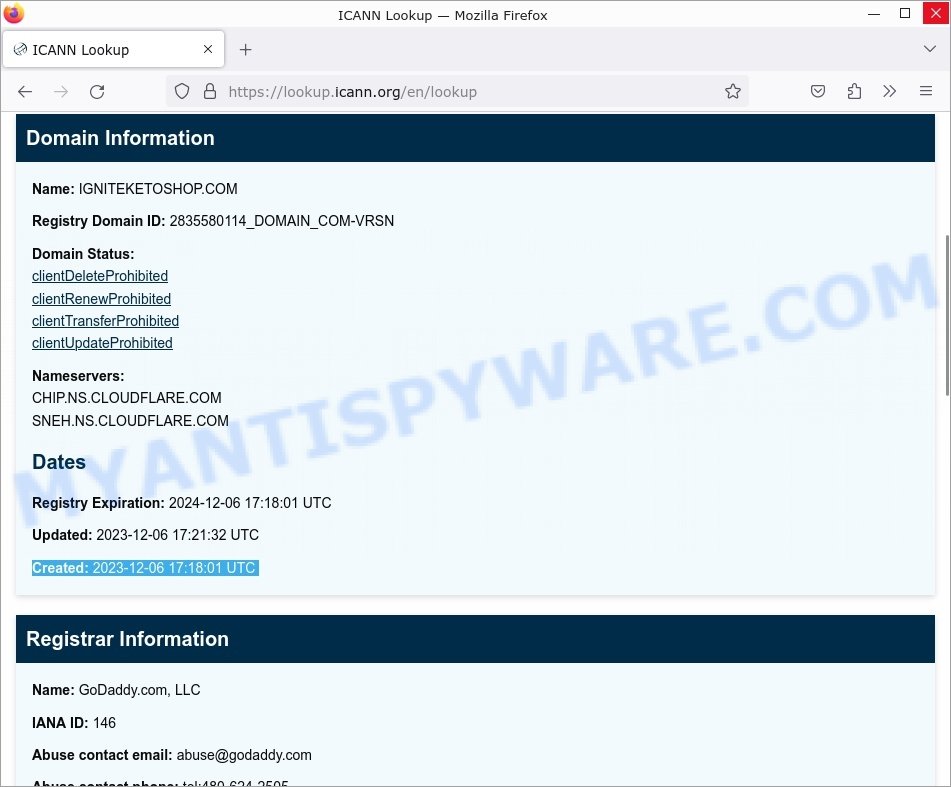Kelly Clarkson and Dolly Parton Weight Loss Scam is a classic example of an online scam, with six clear signs indicating its fraudulent nature. Firstly, the scam utilizes celebrity endorsement, leveraging the names of Kelly Clarkson and Dolly Parton to attract attention. The use of celebrities in scams is a common tactic, as it lends an air of credibility to the scheme. The advertisements on Facebook promise rapid weight loss, which is a typical red flag in diet scams.
Secondly, the presence of a deep fake video in the ad raises immediate suspicion. Deep fake technology can create convincing but entirely false representations of celebrities or events. Thirdly, the scam leads to a phishing page (purekana.uk.com flagged as malware by VirusTotal), designed to mimic a Facebook page. This tactic is often used to steal personal information or mislead victims into thinking they are on a legitimate website.

Fourthly, the product itself, ‘Ignite Keto’ Gummies, is part of a fraudulent weight loss supplement scheme. The outrageous claims of rapid and effortless weight loss are common indicators of a scam.

Fifthly, the website selling the product, igniteketoshop.com, lacks any contact information, which is a huge red flag. Legitimate businesses typically provide transparent contact details for customer service and support.

Finally, the recent creation date of the website (2023-12-06) and hidden WHOIS contacts are typical characteristics of scam websites. They often have recent creation dates and go to great lengths to hide the identities of the people behind them.
In conclusion, the Kelly Clarkson and Dolly Parton Weight Loss Scam employs several deceptive tactics to lure unsuspecting victims. Be cautious of similar scams and always verify the legitimacy of weight loss products and endorsements. The consequences of falling for this scam can include financial loss, identity theft, and exposure to potentially harmful products.
What to Do if You Become a Victim of the “Kelly Clarkson and Dolly Parton Weight Loss Scam”
If you suspect you’ve fallen victim to this scam:
- Stop All Transactions: If you’ve made a purchase, contact your bank or credit card company to report the unauthorized transaction.
- Change Passwords: Change passwords for your online accounts, especially if you provided personal information on the scam website.
- Report to Authorities: Report the scam to your local authorities and relevant consumer protection agencies.
- Share Information: Inform friends and family about the scam to prevent them from falling victim as well.
Summary Table
| Row | Details |
|---|---|
| Name | Kelly Clarkson and Dolly Parton Weight Loss Scam |
| Type | Online Phishing and Product Scam |
| Fake Claims | Rapid weight loss (98 pounds in 3 months) with Keto Ignite Gummies, endorsed by celebrities Kelly Clarkson and Dolly Parton. |
| Disguise | Uses deep fake videos and counterfeit celebrity endorsements. |
| Scammers Websites | purekana.uk.com, wy180.com, igniteketoshop.com |
| Scammers ads | 1. 🎄Kelly Clarksoп and Dolly Parton share their weight loss journey and invite everyone to join in transforming body shape and focusing on health before Christmas….💝 PUREKANA.UK.COM 😍On the 3rd day, your pants will no longer fit you.Act now! 𝟲𝟬-𝗱𝗮𝘆 Money Back Guarantee! 😉 2. 👩🎤 Kelly Clarksoп and Dolly Parton share their weight loss journey and invite everyone to join in transforming body shape and focusing on health before Christmas |
| Damage | Potential financial loss, identity theft, personal data compromise. |
| Distribution | Promoted through Facebook ads, leading to phishing websites. |
| Indicators of the Scam | Celebrity endorsements without verification, unrealistic weight loss claims, lack of contact information on websites, recent creation of websites, hidden WHOIS details, phishing pages mimicking Facebook. |
| Prevention Tips | Verify celebrity endorsements, be skeptical of rapid weight loss products, check website legitimacy, avoid clicking on suspicious links. |
| Reporting Info | Report to local consumer protection agencies, file a complaint with the Federal Trade Commission (FTC), report phishing websites to the hosting provider or domain registrar. |

















